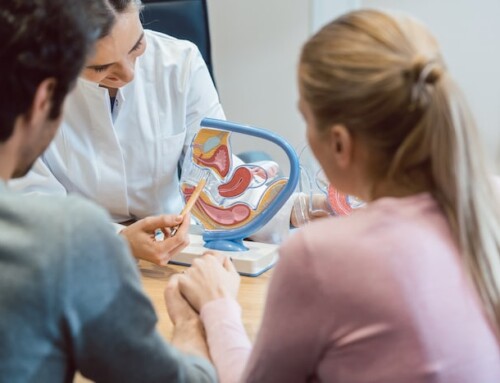The view of a traditional, nuclear, family of a heterosexual couple with 2.4 children has long been an outdated concept. For over ten years now fertility medicine has been providing same sex couples with exactly the same access to fertility treatment as heterosexual couples. Recent changes in the UK civil partnership law also mean that same sex couples have the same rights to IVF as married couples. Whilst this doesn’t apply globally, it does show a forward thinking attitude which has been embraced by many IVF clinics. The Cyprus IVF Centre is no exception. Alison Murdoch of the British Fertility Society set out the view that if a child is going to be raised in a loving family, then the sex of the parents should not matter.
Team Miracle are highly experienced in helping same sex couples conceive. The process for male and female couples differs slightly, but there are high success rates for both.
Why fertility treatment?
A commonly asked question of same sex couples is why they choose to have fertility treatment rather than adopt. The answer is because they quite naturally want to feel a biological bond with their child and IVF treatment is a great way of achieving this.
Female Same Sex Couples
With same sex IVF treatment, a sperm donor is necessary to complete the treatment. Same sex couples usually differ from other patients at the Cyprus IVF Centre in that they do not actually have fertility problems. They often wish to just access the very simplest form of IVF, which is known as IUI (intra-uterine insemination).
• How is the sperm selected?
Female couples have the option to use sperm from a donor they have already chosen prior to beginning their treatment at the Cyprus IVF Centre, or they can choose a donor from the many available in our on-site sperm bank in Cyprus. Sperm donors are subject to rigorous health checks to ensure that they are suitable before being accepted onto the Team Miracle sperm donation programme.
• What happens next?
Donor insemination is a simple, painless procedure which involves putting the sperm straight into the uterus just before ovulation occurs. This can either be done during a normal menstrual cycle, or a fertility drug, such as Clomid, can be used to induce ovulation giving slightly higher success rates as well as a shorter duration of treatment. There is often confusion between IUI and IVF. The former is a simple method of ensuring that the sperm are placed in the uterus; the embryo is not created outside of the body. IUI has a lower chance of success than IVF because there is no guarantee that the sperm will meet the egg, fertilise it successfully and then implant and develop into a baby. With IVF, the embryos are created in the laboratory and up to 4 blastocyst embryos will be transferred to the uterus. There are much higher success rates with IVF when compared with IUI.
Another option is to use donor eggs as well as sperm. This may be the preferred method for a number of reasons:
– Age
– Low egg reserves
– Not wanting just one partner to be biologically connected to the child
– High risk of passing on an inherited genetic disorder
– If your own eggs have been damaged through treatment such as chemotherapy
If donor eggs are used, the full IVF procedure will be necessary.
Choosing whether or not one partner carries the child, or whether a surrogate is preferred is a personal choice. If surrogacy is a route that you wish to go down then there will be plenty of advice and support at the Cyprus IVF Centre.
Reasons for choosing a surrogate differ, but the most frequent are:
– Age
– Physical inability to carry a child
– Medical problems which make a pregnancy not recommended
– Personal choice
Team Miracle will be able to answer any questions or concerns you may have and advise you which is the best treatment option for you.
Male Same Sex Couples
As a same sex male couple, you will need to source your own surrogate mother before embarking on IVF with Team Miracle at the Cyprus IVF Centre.
Treatment for male same sex couples contains some of the same choices as with female couples:
– Your own sperm or donated sperm
– An egg donor personally known to you or sourced through the Cyprus IVF Centre?
Whenever a surrogate mother is used, it’s a good idea to protect everybody’s interests by drawing up a formal agreement. A surrogate pregnancy is often surrounded by legal issues and a formal document gives peace of mind to all parties.
There are a number of treatment options including using sperm from both partners and transferring two embryos created from the sperm of the first partner and two embryos created from the sperm of the second partner. Although there is no guarantee of which embryos will implant, many couples like the idea that both sets of sperm has been given a chance.
Embryo donation may be an option if you require both egg and sperm donation.
FAQ
1. Are there any risks with choosing donor eggs or sperm?
The Cyprus IVF Centre ensures that all donors are screened at the very highest level. There are rigorous procedures in place so that only the very highest quality of donor sex cells are used. For further details of the donor programme please see the section dedicated to our donors.
2. How do I know which is the right choice for us?
There’s no hard and fast rule when making your choices, however it’s worth considering every single aspect of your lives and how you want the pregnancy to go. For example:
- If you want to carry the pregnancy yourself have you thought about work, maternity leave and pay?
- Are you both completely comfortable with one partner being the biological mother/father or would you like to use eggs/sperm from both of you or neither of you?
- If you need to use a surrogate, do you want them near to you? Do you want to be actively involved with the pregnancy?
Addressing expectations will mean that the pregnancy goes as smoothly as it can and whatever your choices you will be fully supported by the experienced members of Team Miracle at Cyprus IVF Centre in North Cyprus.






